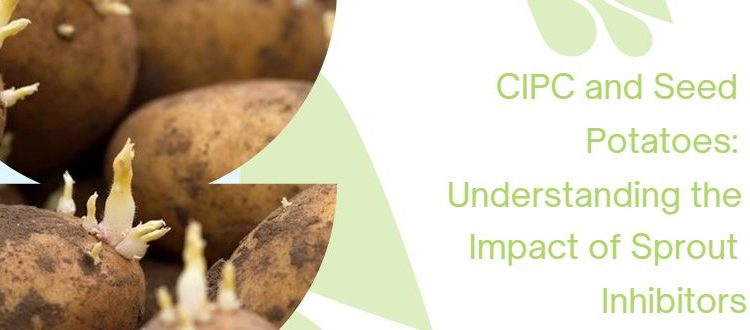#CIPC #seedpotatoes #sproutinhibitor #potatoproduction #storagepractices
Seed potatoes are a crucial component of potato production, serving as the source for planting new crops. To ensure optimal yield and quality, it is essential to prevent the premature sprouting of seed potatoes during storage. One common method employed in commercial potato farming is the use of sprout inhibitors, with CIPC being a widely utilized compound.
CIPC, or chlorpropham, acts as a sprout inhibitor by inhibiting the growth of buds on potato tubers, effectively delaying the onset of sprouting. This characteristic makes CIPC a valuable tool in the potato industry, as it enables growers to store their potatoes for extended periods without experiencing significant sprouting issues.
However, it is crucial to be aware of the potential consequences associated with CIPC usage, particularly when it comes to seed potatoes. CIPC does not degrade quickly and can persist in the environment for an extended period. Even trace amounts of residue can negatively affect the sprouting process of seed potatoes, leading to suboptimal crop performance.
As a result, it is strongly recommended that seed potatoes are not stored in structures that have previously been exposed to CIPC. The residual presence of CIPC can impede the natural sprouting process, potentially leading to uneven sprouting, weakened seedlings, and reduced overall yields. To ensure the best possible outcomes, it is essential to provide seed potatoes with a conducive storage environment that is free from any CIPC contamination.
The use of CIPC as a sprout inhibitor has undoubtedly contributed to improved potato storage and preservation. However, the unintended consequences of CIPC residue on seed potatoes highlight the importance of careful handling and storage practices.
If seed potatoes are exposed to structures contaminated with CIPC, the subsequent sprouting performance may be negatively impacted. This can result in decreased yields, lower-quality crops, and economic losses for potato farmers. Furthermore, compromised sprouting can lead to increased susceptibility to diseases and pests, further exacerbating the negative impact on potato production.
To mitigate these risks, potato growers and industry stakeholders should prioritize thorough cleaning and decontamination procedures for storage structures. Additionally, implementing alternative sprout inhibition techniques or seeking alternative sprout inhibitor products with lower residue persistence can help reduce the negative consequences associated with CIPC usage.
While CIPC has proven effective in inhibiting sprouting in commercial potatoes, its residual effects on seed potatoes can be detrimental to crop performance. Awareness of the potential consequences, avoidance of storage in CIPC-exposed structures, and adoption of alternative practices can help ensure the optimal sprouting and growth of seed potatoes, leading to improved yields and overall potato production.
Source: Australian Potato Growers







